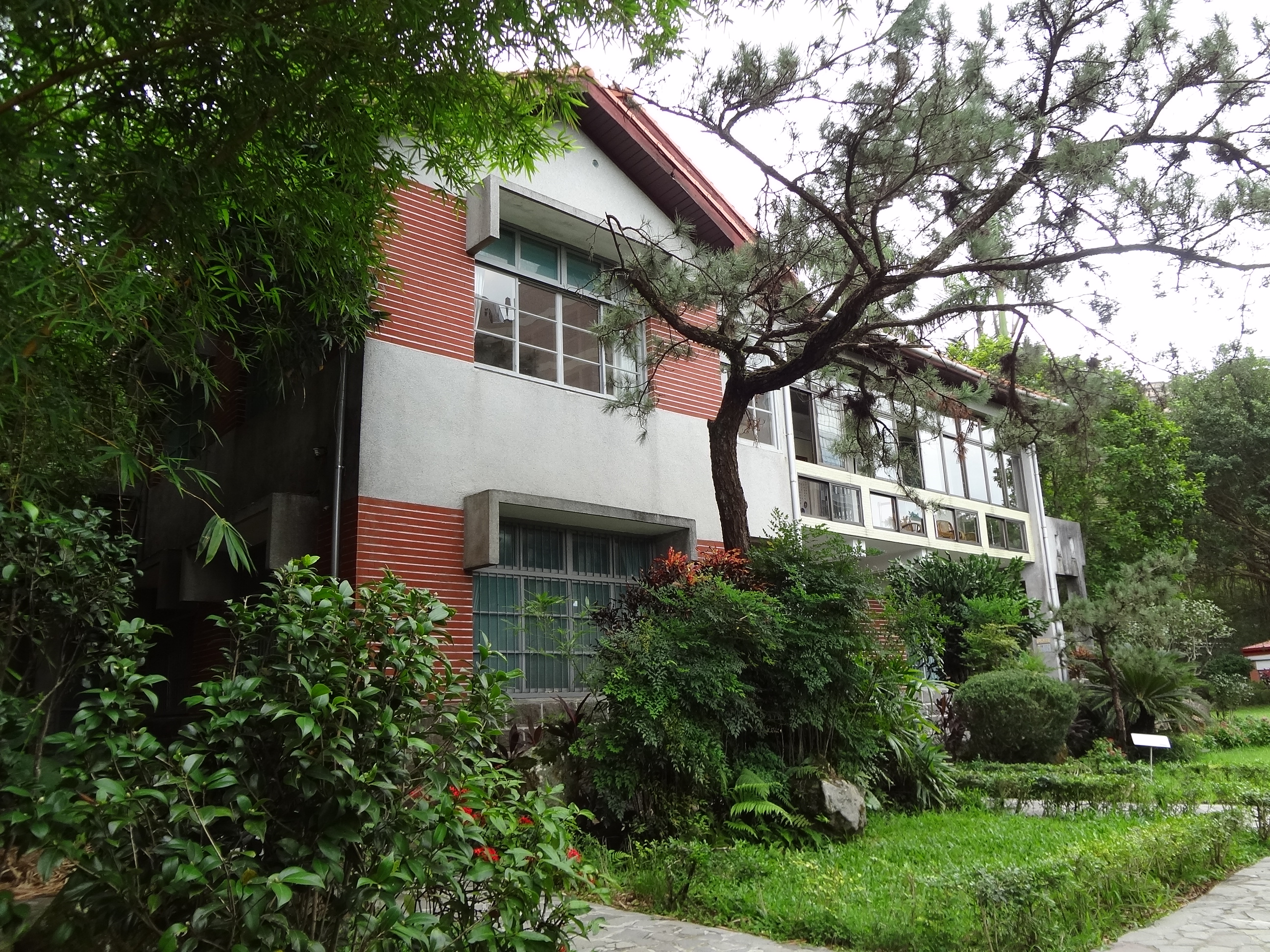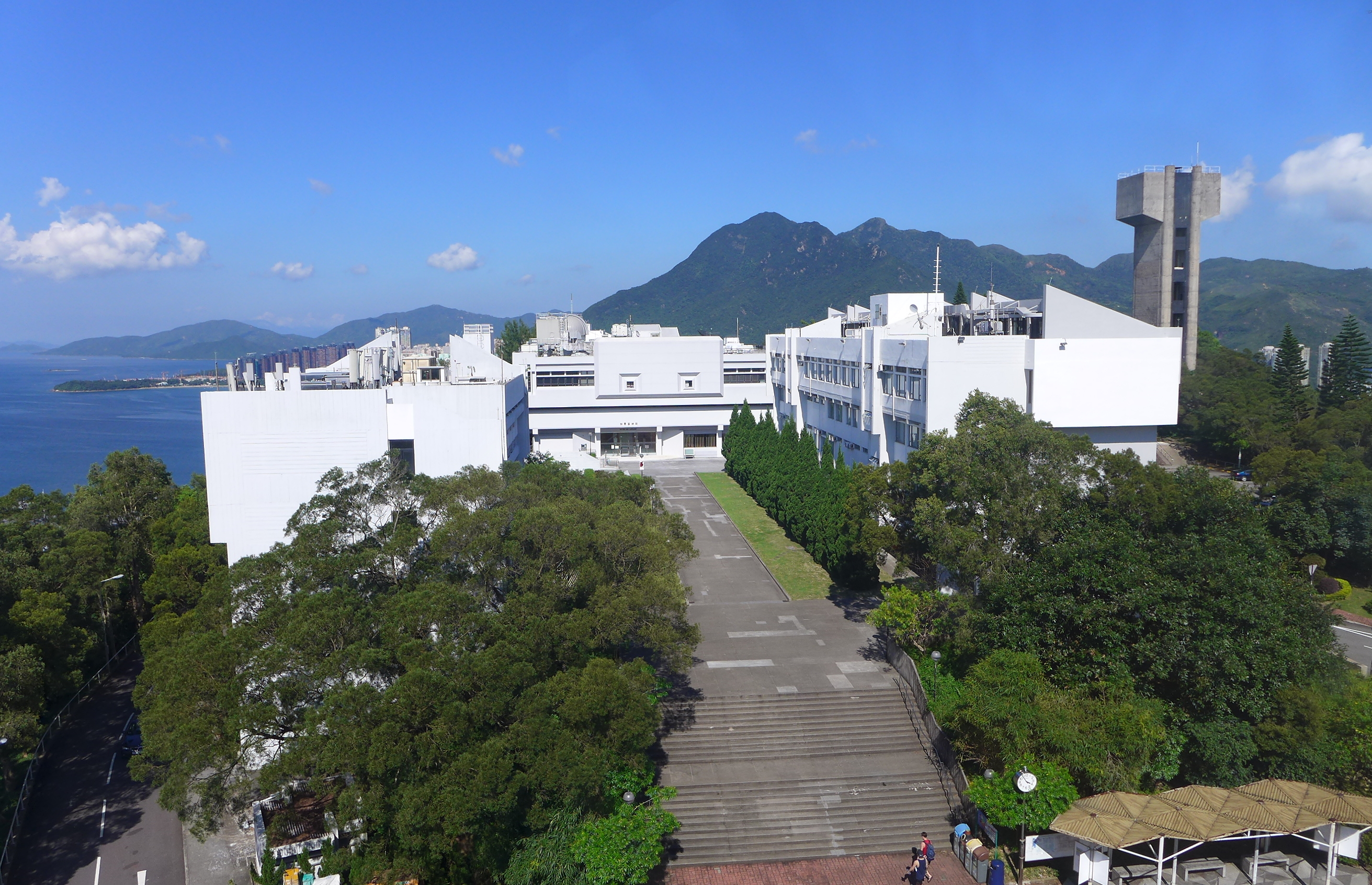|
Ch’ien Mu Library
The Ch'ien Mu Library (), named after Prof. Ch'ien Mu, is located in the New Asia College of the Chinese University of Hong Kong (CUHK). As one of the seven libraries of CUHK, the Ch'ien Mu Library houses the collections on Chinese Language and Literature, Fine Arts, Japanese Language and Literature and General Education, and provides various facilities including Exhibition Areas, 24-Hour study facilities, Group Study Rooms and Outdoor Reading Area. Background The New Asia College Library was first founded as part of the New Asia College on Farm Road, Kowloon in 1954. As the New Asia College became one of the constituent colleges of the CUHK, the library was also moved into the Ma Liu Shui campus in 1973 and named "Jing Ye Guan" afterwards. In 1975, it was renamed after Prof. Ch'ien Mu, the founder of the New Asia College. The bust of Mr. Ch’ien Mu, sculpted by Prof. Wu Wei-shan who was director of the Academy of Fine Art of Nanking University, was placed in the lobby of the C ... [...More Info...] [...Related Items...] OR: [Wikipedia] [Google] [Baidu] |
Ch'ien Mu Library
The Ch'ien Mu Library (), named after Prof. Ch'ien Mu, is located in the New Asia College of the Chinese University of Hong Kong (CUHK). As one of the seven libraries of CUHK, the Ch'ien Mu Library houses the collections on Chinese Language and Literature, Fine Arts, Japanese Language and Literature and General Education, and provides various facilities including Exhibition Areas, 24-Hour study facilities, Group Study Rooms and Outdoor Reading Area. Background The New Asia College Library was first founded as part of the New Asia College on Farm Road, Kowloon in 1954. As the New Asia College became one of the constituent colleges of the CUHK, the library was also moved into the Ma Liu Shui campus in 1973 and named "Jing Ye Guan" afterwards. In 1975, it was renamed after Prof. Ch'ien Mu, the founder of the New Asia College. The bust of Mr. Ch’ien Mu, sculpted by Prof. Wu Wei-shan who was director of the Academy of Fine Art of Nanking University, was placed in the lobby of the C ... [...More Info...] [...Related Items...] OR: [Wikipedia] [Google] [Baidu] |
Ch'ien Mu
Ch'ien Mu or Qian Mu (; 30 July 1895 – 30 August 1990) was a Chinese historian, philosopher and writer. He is considered to be one of the greatest historians and philosophers of 20th-century China. Ch'ien, together with Lü Simian, Chen Yinke and Chen Yuan, was known as the "Four Greatest Historians" of Modern China (現代四大史學家). Life Early life: Jiangsu, Beijing Ch'ien Mu was from the prestigious Qian (Ch'ien) family in Wuxi. His ancestor was said to be Qian Liu (852–932), founder of the Wuyue Kingdom (907–978) during the Five Dynasties and Ten Kingdoms period. He was born in Qifang Qiao Village (七房橋; "Seven Mansions Bridge Village"), in Wuxi, Jiangsu Province. His biographer Jerry Dennerlien described his childhood world as the "small peasant cosmos" of rituals, festivals, and beliefs held the family system together. He received little formal education, but gained his knowledge on Chinese history and culture through traditional family school educatio ... [...More Info...] [...Related Items...] OR: [Wikipedia] [Google] [Baidu] |
New Asia College
New Asia College is a constituent college of the Chinese University of Hong Kong located in Sha Tin, New Territories, Hong Kong. History New Asia College was founded in 1949 by Chinese scholars Ch'ien Mu (Qian Mu), Tang Junyi (Tang Chun-i), and Zhang Pijie (Tchang Pi-kai), in Hong Kong, then a British dependency, after the Communist victory in mainland China. In 1963, the College joined forces with United College and Chung Chi College to form the Chinese University of Hong Kong under a charter granted by the Legislative Council of Hong Kong. The College has since then become a research and educational hub for Confucian philosophy and Chinese studies. Presidents and Heads Presidents & Heads of New Asia College: Presidents (1949-1977) :1. Prof. Ch'ien Mu (1949-1965) :2. Prof. Ou Tsuin-chen (吳俊升) (1965-1969) :3. Prof. Y.T. Shen (1969-1970) :4. Prof. Y.P. Mei (1970-1973) :5. Prof. Yu Ying-shih (1973-1975) :6. Prof. Chuan Han-sheng (1975-1977) College Heads (1977- ... [...More Info...] [...Related Items...] OR: [Wikipedia] [Google] [Baidu] |
Chinese University Of Hong Kong
The Chinese University of Hong Kong (CUHK) is a public research university in Ma Liu Shui, Hong Kong, formally established in 1963 by a charter granted by the Legislative Council of Hong Kong. It is the territory's second-oldest university and was founded as a federation of three existing colleges – Chung Chi College, New Asia College and United College – the oldest of which was founded in 1949. CUHK is organized into nine constituent colleges and eight academic faculties, and remains the only collegiate university in the territory. The university operates in both English and Chinese, although classes in most colleges are taught in English. Four Nobel laureates are associated with the university, and it is the only tertiary institution in Hong Kong with recipients of the Nobel Prize, Turing Award, Fields Medal and Veblen Prize sitting as faculty in residence. History Origins The university was formed in 1963 as a federation of three existing colleges. The first of th ... [...More Info...] [...Related Items...] OR: [Wikipedia] [Google] [Baidu] |
Farm Road (Kowloon) , Hong Kong
{{roaddis ...
Farm Road may refer to: *Farm to Market Road, in United States * A residential street running from Patterson Plank Road to the Hackensack River in Secaucus, New Jersey * Farm Road (Hong Kong) (農圃道), a street in Ho Man Tin Ho Man Tin is a mostly residential area in Kowloon, Hong Kong, part of the Kowloon City District. History Section of lists of villages in the book ' (literally ''The History of Xin'an County'') published in twenty fourth year of Jiaqing era ... [...More Info...] [...Related Items...] OR: [Wikipedia] [Google] [Baidu] |
Berea College
Berea College is a private liberal arts work college in Berea, Kentucky. Founded in 1855, Berea College was the first college in the Southern United States to be coeducational and racially integrated. Berea College charges no tuition; every admitted student is provided the equivalent of a four-year scholarship. There are still other fees, such as room and board, textbooks, and personal expenses. Most students receive grants or scholarships and do not have to take out many loans, if any at all. Berea offers bachelor's degrees in 33 majors. It has a full-participation work-study program in which students are required to work at least 10 hours per week in 1,500 campus and service jobs in more than 130 departments. Students are paid a modest salary and typically use the funds to cover the cost of housing, meals and other expenses. Students do not get to choose their work assignment their first year but can choose during subsequent years. Berea's primary service region is southern A ... [...More Info...] [...Related Items...] OR: [Wikipedia] [Google] [Baidu] |
Academic Libraries In Hong Kong
An academy (Attic Greek: Ἀκαδήμεια; Koine Greek Ἀκαδημία) is an institution of secondary or tertiary higher learning (and generally also research or honorary membership). The name traces back to Plato's school of philosophy, founded approximately 385 BC at Akademia, a sanctuary of Athena, the goddess of wisdom and skill, north of Athens, Greece. Etymology The word comes from the ''Academy'' in ancient Greece, which derives from the Athenian hero, ''Akademos''. Outside the city walls of Athens, the gymnasium was made famous by Plato as a center of learning. The sacred space, dedicated to the goddess of wisdom, Athena, had formerly been an olive grove, hence the expression "the groves of Academe". In these gardens, the philosopher Plato conversed with followers. Plato developed his sessions into a method of teaching philosophy and in 387 BC, established what is known today as the Old Academy. By extension, ''academia'' has come to mean the accumulation, dev ... [...More Info...] [...Related Items...] OR: [Wikipedia] [Google] [Baidu] |




